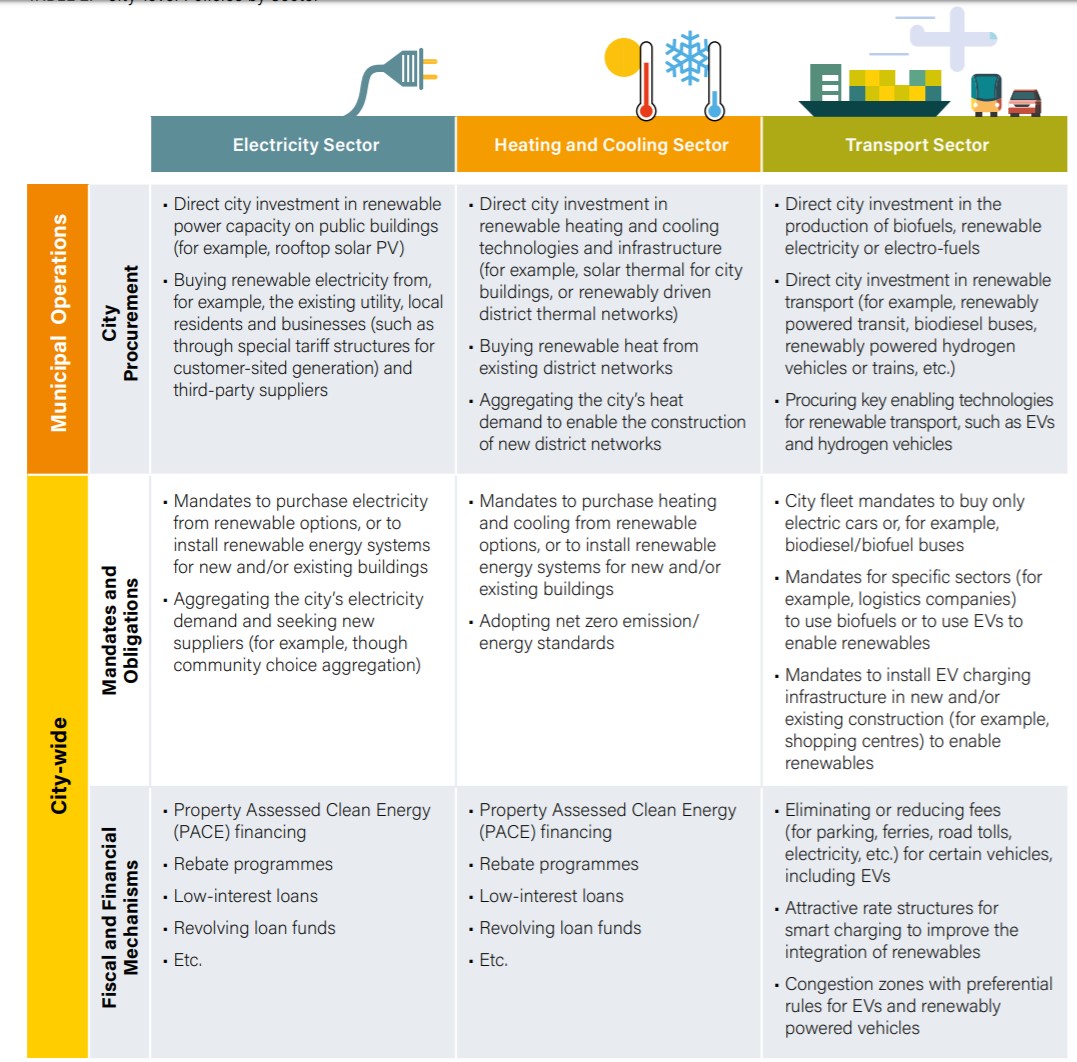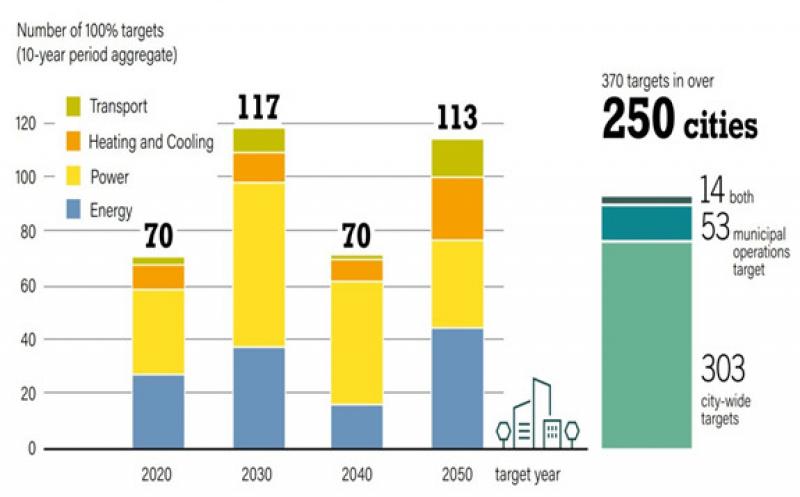The Renewables in Cities 2019 Global Status Report is the first of this kind by REN21, a global network specializing in benchmarking renewables transitions. The report is a collaborative outcome of over 380 authors, providing inclusive and informed insights into the current status and trends.
The document dives into drivers for renewables transition in cities, ranging from air pollution to energy security and sustainable transport. It also looks into the landscape of policies and targets adopted by cities. For example, targets vary from aspirational, simple and generic to binding, stepped-up and specific.

City-level Renewables Policies by Sector. Source: REN21
The way those targets are set can have significant implications for the further progress of a city on achieving them. So far more than 250 cities and municipalities have adopted 370 100% renewable energy targets in either power, heating and cooling, transport or all sectors. Among key achievements, as of 2018, total distributed solar PV installations grew to 213 GW.

100% Renewable Energy Targets in Cities, as of Mid-2019. Source: REN21
The authors also explore current urban renewable energy markets and finance. They particularly dive into mechanisms such as renewable energy purchase agreements, peer-to-peer energy sharing, crowdfunding, green and climate bonds, as well as leasing and pay-as-you-go schemes.
Finally, the report elaborates on the role of citizen participation, including prosumption, participatory governance, and public ownership and other cases. It, however, notes that sometimes “consumer choice may not be the optimal solution – and instead has to be limited” to optimize social, economic and environmental outcomes.
The report also provides many real-life examples, from Aberdeen and Evora to Quito and Quelimane. For example, Copenhagen is on the road to becoming the world’s first carbon-neutral city. Wind covers most of the city’s power needs. And biomass-based district heating covers 97% of its heating needs.
Investing heavily in renewables, New York City requires the installation of Solar PV on all new buildings in the city. New Delhi in India implements an innovative virtual net metering scheme for customers that want to use solar PV but do not have a suitable roof. And Zhytomyr in Ukraine is combining biomass heat and power plants with financial support to citizens installing solar PV systems.
Cities are leading the global renewables transition, achieving some of the most ambitious energy targets. They also act as examples of embracing responsibility for the planet and employ it to do better for all.
“Data on local- and city-level renewable energy policies and achievements tend to be decentralized, limited and outdated,” observes Rana Adib, research coordinator at REN21. “Building on our international community and rigorous data collection processes, REN21 plays a unique role in compiling and consolidating disperse data to build awareness of the energy debate”.
Dib believes that such an approach allows us to understand data gaps and build awareness while “advancing the story of cities’ role in the energy transition”. All this makes a clear case for a better future.